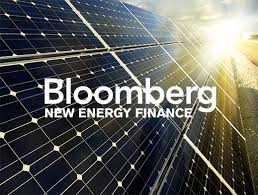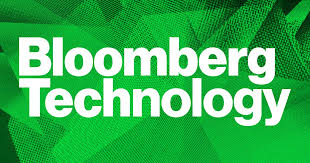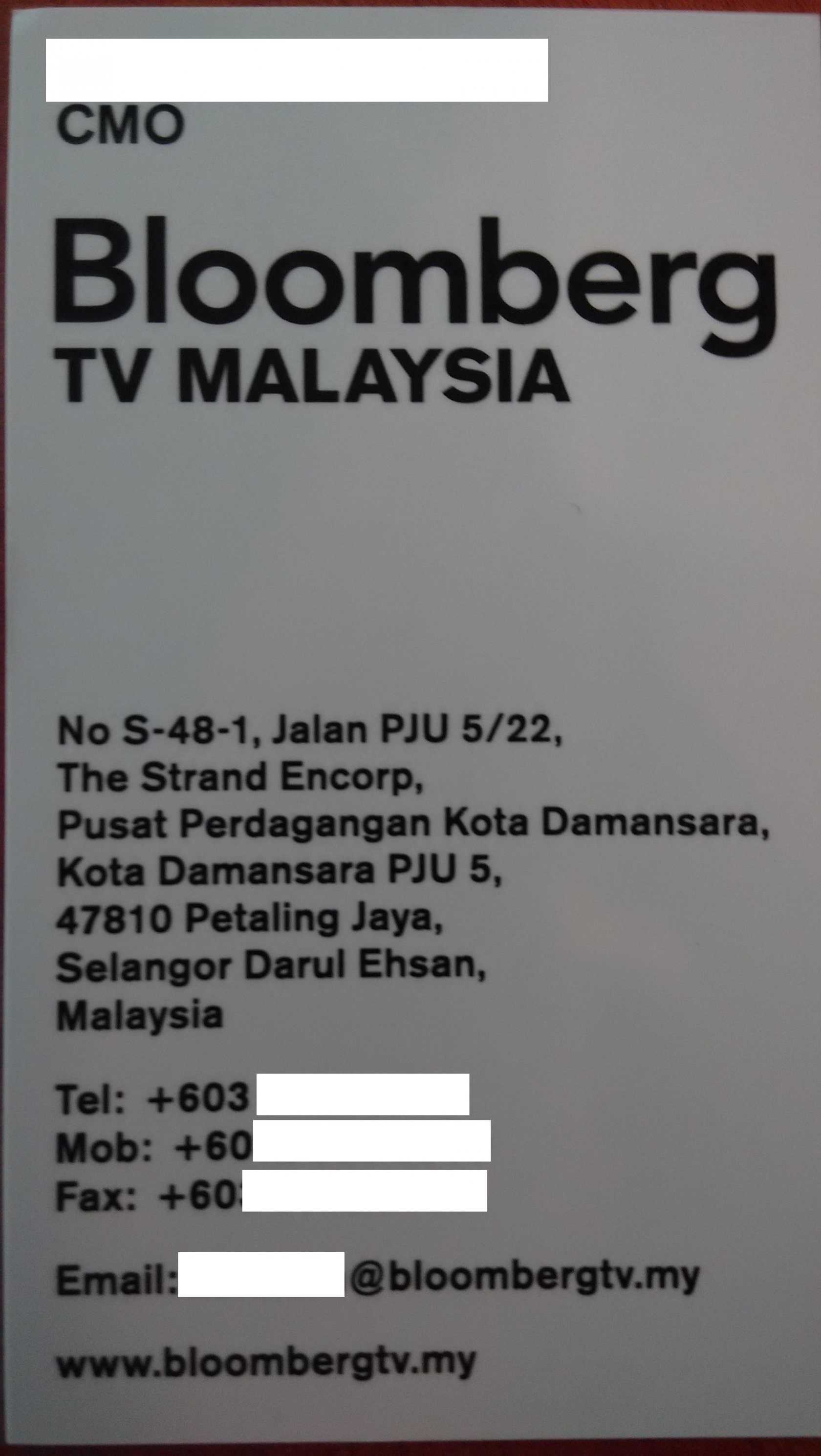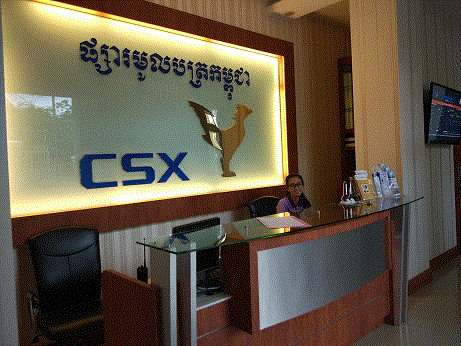Values
Shock The World. Nothing, is More Valuable.










HOW TO VALUE A COMPANY?
There are quite a few methods to give a company a valuation, & they vary not only based on the metrics used, but also based on what group is actually valuing it. Lets start with the typical groups & how they generally value a company.
Groups.
1. Stock Market Analysts (Their goal is earning a specific return over the long term like 10-12% per year)
- Tech investors (High Valuation)
- Value Investment Manager Basis (Low to Medium Valuation)
- Long Term Growth & Momentum Investor Basis (Medium to high)
- Liquidation Value, Book Value, Assets & income basis only (Low)
= They all value based on earnings of the company at some multiple of years ie. Tesla motors is given 45x the earnings amount because they will grow fast and earn a lot more.
2. Sharks (Goal is eat as much shares as possible with as little invested, then flip the company at maximum price/time to someone else or get money back by increasing sales actively.)
= Value Given is a mere 1-2 years of existing earnings, with no future growth. (Low)
3. Vulture Capitalists (Like Sharks, but will price a little higher, but still very exploitative.)
- Value give is 3-10x earnings or an earnings estimate once the growth plan with their capital is injected. BUT, they try to value it on the current earnings without money put in, AND rip as much of a chunk of shares FOREVER as they can, despite they will never work a single day in the company.
4. Mandate Based Venture Capitalists (They stick to their mandate of beating the market by x amount & earning a certain multiple over a set number of years. This is what they sell to investors to raise capital.)
- The Stock market performance is 1.31X over 10 years. That means when you invest $1,000 in 10 years it will be $2,310 in 10 years. 90-95% of VC funds & investors DO NOT achieve this according to world famous Kaufmann Institute who collects massive amounts of data on investing & VCs.
- If these investors were to stick to their mandate they sell investors, they would invest to beat 1.31x over 10 years. However, usually they get too greedy, like those 3 above, & go for opportunities they think they might be able to make 10x or even more on something that "might go" sacrificing security & underfunding quality merit based startups. This is one of the reasons they fail.
There are two kinds of investors in these 2nd, 3rd, and 4th classes.
A. Greedy Exploiters (They want as much as can get, at any cost, & do a lot of damage to investors & startups along the way to get it. Often wreckless with investor money preferring big hitter chance versus secure win above 1.31x in the bank)
B. Smart Empowerers (They seek to build, empower, develop. Sometimes they will just give a loan saying "you don't need an investor you just need a loan, here's a loan." They don't even need to get equity on every deal. They want the winners more than the losers at the fleeting 100x chance.)
Startups are not on the stock market due to the insane anti-competitive regulations the governments have propped up, this means they are less liquid investments. If they were liquid like on the stock market, there would be no reason they shouldn't price high like stocks in fact a lot higher because their earnings will grow incredibly fast.
Tech stocks for example price at an average of 45-100 years of earnings. In international markets like Russel 2000 or Chinext or Hong Kong or Japan they often price between 100-261x earnings, some even higher, and people still pay. Why? Because these stocks will grow their earnings very fast if given the appropriate amount of capital they need. At 261x, if they double their earnings 3x now it's only 33x, less than the 45. This is almost a certainty for a strong small growth stock with capital gateway access. 261x is thus a common price in the last 30 years for high growth potential stocks due to the demand beyond that fast growth & then the consideration it will keep doing so in future years & that the earnings are just getting started. In fact the Russel 2000 small cap index average price was recently exactly 261x. These are small cap global stocks like AOE. It's the proper comparison basket to make for AOE.
Due to the liquidity issue, a discount to these multiples for startups (ie. 45) makes sense in most cases. Vulture capitalists value only on what the business makes today however, in order to short change the founders. They don't value based on what they will actually make once funded. If they do consider this, they exploit the founders by attaching 2 separate valuations. One called Pre-Money the other called post money. Then they want to take shares based on the pre money valuation when in reality nothing is happening without that money anyway and as soon as they invest, the company has the money at that valuation. This is a pure exploitation play by the investors & is not part of stock market investing in established companies.
Some startups have a better chance to grow than others based on their business model, tech, product, service, market demand, industry, defensibility, security & risk factors, etc.
Many Factors should be considered when valuing:
- Earnings
- Earnings after have the money
- Multiple of these earnings given depending on the market for such investments
- The full marketability to investors
- Technology value & perceived value
- Comparable investments of similar companies or similar demand or buzz startups
- Tech sales value
- Risk factors
- Time to profit
- Capital that will come on behind the investor once it's built
- World Buzz Opportunity
- Ease of raising & exiting the investor after he invests
- Ability to pay the investor a good time premium after he invests ie. 3x in 2-3 years, 5x in 3-5 years, 6-8x in 5-8 years, 10x in 10 years etc.
a 10X return over 10 years is incredible & despite VC always talking about it, it is actually quite rare, & way higher than the 1.31x that 90-95% of VC are achieving.
1. If a Startup has a solid opportunity to take the capital from a startup deal, make 1 million a year, then grow to 10 million a year in 10 years, earning the VC 10-45x, there is no reason for the VC to not price this accordingly on not only the Fair, Post-money value (the value after the money is invested, not the Vulture capital Pre-money valuation) because the startup will beat the 1.31x in just a couple doubles of earnings, but also they should not care what the ownership percentage is, but rather the security of how they will get their money back and when.
2. If the startup can take the capital, solidly earn 1 million/yr, which will undoubtedly cause another 100 million to pile on, plus other raises, availability to commercial finance another 50 million, Blockchain raises will happen of 20 million, and then a certainty fast IPO, and they have "out of this world valuable technology" in a huge demand world industry, obviously the valuation should be much higher. This is unfortunately where many VC get greedy. They forget their mandate, & get the Jaws out to eat and undercut instead of empowering. In this case the VC should be concerned about making this happen to maximize the opportunity, but not be losing sight of the mandate of 1.31x to 2x or whatever their average actually is that they sell to investors.
A big problem always happens when the VC demands equity. The founder wants to give up as little as possible. So the VC is on the left and the founder on the right and there is no meeting in the middle. However, the VC needs to get a good return, and needs to get his money back with that return. So, how to make that middle happen?
Ultimately, the VC should be more than happy to give as high a valuation for as low a share take as possible if:
- They get their mandated sold to investor value as they sold it to investors. 1.31x plus some basis points over the time period sold
- It's a secure opportunity that has low risk
- They will get their money back early as the Startup model has multiple exit methods which are reasonable, and chalk up a big win for their fund.
However, this is where they get very greedy & start trying to rip & exploit instead of empower. They want to get shares, and not just shares, but shares for life, even when they will never work a single day of their lives inside this company. Just throwing some money at it, and they will literally get a big chunk of it permanently forever, and it can't even be bought back from them if they turn out to be a mass murderer or something else. Clearly this is a problem that the investment world hasn't really addressed. This is not consistent with concepts like "stakeholder capitalism" where there is more equitable opportunity for the poor (Startups etc) but its very much an endless elitist pyramid prop up & defense mechanism that is very much self-feeding, and which very little philanthropy is coming from, & where only 1 in 50,000 startups worldwide ever in their lives get a deal and most of it is just late stage follow on zombie capital.
So, what's the solution & how to value the company?
1. Debt. If you take money from an investor, they should get 100% of everything until they get their money back, period. This isn't just fair but it's really a minimum ethical standard. Founders should not be pulling huge swaths of money out while investors are left with the tab and have to fight to sell whats left when have only 5% of the shares.
2. Fixed minimum return in debt. If you take money from an investor, they don't invest to get 7% they invest to get 12-14% or 1.31x+ over 10 years. This should be GUARANTEED MINIMUM in the debt note to the investors. Interest payments should be deferred for the health of the business, but, this should be in debt to ensure the investor gets paid.
3. Shares should not matter thus in this case. There is no need for shares in this structure. The investor has 100% of the assets as collateral in case of insolvency. The greed for shares isn't actually needed by the investor.
4. Investors should be more than willing to take the 1.31x+ and run once this is achieved. If in 2 or 3 years instead of the 10 year mandate, that's great for the investor. They got the win and much earlier. Again the greed for shares isn't actually needed by the investor.
5. So, The investor wants shares why? Greed. They know they will choose a lot of losers, at least 50-70% of their investments if not more will be total losses based on what they chose, how they demanded it to be set up and built, and because they didn't go for the easy secure wins & sustainable business that creates jobs, impact & a lasting future. The greed controls them and they want to muscle a huge home run & exploit equity for life when they will never spend a single day at work there.
6. Setting an investment target minimum total return with no actual shares, a minimum return per year, with 100% debt coverage of both, on a valuation that is 1/10th of the reasonable 10 year build value, where the investor gets more relative return if the business grows more, is a fantastic solution that solves all the problems.
- 3x minimum return guarantee
- 14% annual investment return guarantee
- 100% debt coverage on all assets, equipment, shares up to 3x in case of insolvency
- If the company will be 1 Billion in value in 10 years due to all the considerations, 100 million in value today post money if that money will allow them to build 2.5 million in earnings from it, pricing them for a 45x earnings IPO at 100 million dollars as soon as it's built, giving 3x to the investor on their capital to run away with, or stay in for 10x+, IS the solution.
- Adjustments from this for each business & it's realistic prospects of achieving this, need to be taken into consideration. 10 years is a long time and you can't just pretend that every business will IPO at 1 Billion in 10 years as most don't ever actually do that.
For example, if an AOE has had:
- 50 Million investment offer for fast IPO from Softbank at 1+ Billion Dollars
- 250 Million raise advice from Bloomberg Chief Marketing Officer & offers to put us on TV
- Already signed a 6 million dollar Seed deal
- 734 Megawatts of backorder demand
- Achieved biggest Real Startup deal in an entire country, and most funding
- World #1 technology obsoleting Trillions of dollars in economy
- Can be fast to profit in just $500,000
- Has an asset and income super secure business model that doesn't need any customers
- Is in the biggest demand technology and market in world history in biggest megatrend
- Has 14 Investment Banks who already want to sell the IPO
- Has World Changing technology, a lot of it, not just one.
This kind of company you give a 100+ million dollar value to, so it can achieve it's goals.
A barber shop on the corner is a very different story.
You give a seed of 6.2-8.8 million (8.8 to make a nice little statement, 20-50 million if you want to actually make a Statement Statement. Already there was 100 Million given to the main FuelCell company 17 years ago) an AOE should be above 100 million in the first deal in cash.
This seed is at 100 million valuation post money. the first 24.8 million coming out belongs to the investor as it's 3x minimum fixed. If 100 million in cash comes in, the investor can take it and run, or ride. Shares don't matter one iota. Should the company grow to get the 1 Billion dollar IPO which will be done in AOE's case in 2-3 years, the investor gets 10x. If the investor wants to ride longer, into 10 Billion market cap, they get 100x, if they want to ride to 84 Billion, thats 840x, they can do that, Everyone gets what they need. In this case the investor doesn't have any shares, has way more security, & the founder hasn't given anything up at all. It's a win win for all.
Everyone is talking about how the stock market isn't and hasn't been equitable and there is a huge movement for stakeholder capitalism & need for other more equitable forms of investment. This is what is needed. Empowerment capitalism not Exploitation capitalism.
Also, the investors and founders should be giving something minimal at least 1% to philanthropy or at least social enterprise scalable causes. AOE has always had this commitment & already made significant investment in achieving this to date.
Alternatively, a seed at 100 million valuation, for 8.8% on 8.8 million in cash would also be good for such a startup, or 6.2% for 6.2 million, or 1% for 1 million etc. It cant hurt the investor when he has a debt note for 3x return + principle as his return is locked in on whatever happens regardless & has 100% of collateral if it fails.
If the VC wants to take over the company eventually via shares etc or control it or make decisions etc, he should look to buy a company outright instead of doing this kind of method.
You can see how this kind of financial engineering is far superior to the standard fight of VC on left, founder on right with no room to come to a meeting of the middle.
This sets a great foundation for success as the company has a great valuation which brings in investment at a fantastic price, the investor wins even more from such, can't lose but for insolvency below his 4x total, still has all the upside home run potential he was dreaming for greedily, & those inside the company working their lives on it, get what should be theirs as well.
A much better path, for the future.
Groups.
1. Stock Market Analysts (Their goal is earning a specific return over the long term like 10-12% per year)
- Tech investors (High Valuation)
- Value Investment Manager Basis (Low to Medium Valuation)
- Long Term Growth & Momentum Investor Basis (Medium to high)
- Liquidation Value, Book Value, Assets & income basis only (Low)
= They all value based on earnings of the company at some multiple of years ie. Tesla motors is given 45x the earnings amount because they will grow fast and earn a lot more.
2. Sharks (Goal is eat as much shares as possible with as little invested, then flip the company at maximum price/time to someone else or get money back by increasing sales actively.)
= Value Given is a mere 1-2 years of existing earnings, with no future growth. (Low)
3. Vulture Capitalists (Like Sharks, but will price a little higher, but still very exploitative.)
- Value give is 3-10x earnings or an earnings estimate once the growth plan with their capital is injected. BUT, they try to value it on the current earnings without money put in, AND rip as much of a chunk of shares FOREVER as they can, despite they will never work a single day in the company.
4. Mandate Based Venture Capitalists (They stick to their mandate of beating the market by x amount & earning a certain multiple over a set number of years. This is what they sell to investors to raise capital.)
- The Stock market performance is 1.31X over 10 years. That means when you invest $1,000 in 10 years it will be $2,310 in 10 years. 90-95% of VC funds & investors DO NOT achieve this according to world famous Kaufmann Institute who collects massive amounts of data on investing & VCs.
- If these investors were to stick to their mandate they sell investors, they would invest to beat 1.31x over 10 years. However, usually they get too greedy, like those 3 above, & go for opportunities they think they might be able to make 10x or even more on something that "might go" sacrificing security & underfunding quality merit based startups. This is one of the reasons they fail.
There are two kinds of investors in these 2nd, 3rd, and 4th classes.
A. Greedy Exploiters (They want as much as can get, at any cost, & do a lot of damage to investors & startups along the way to get it. Often wreckless with investor money preferring big hitter chance versus secure win above 1.31x in the bank)
B. Smart Empowerers (They seek to build, empower, develop. Sometimes they will just give a loan saying "you don't need an investor you just need a loan, here's a loan." They don't even need to get equity on every deal. They want the winners more than the losers at the fleeting 100x chance.)
Startups are not on the stock market due to the insane anti-competitive regulations the governments have propped up, this means they are less liquid investments. If they were liquid like on the stock market, there would be no reason they shouldn't price high like stocks in fact a lot higher because their earnings will grow incredibly fast.
Tech stocks for example price at an average of 45-100 years of earnings. In international markets like Russel 2000 or Chinext or Hong Kong or Japan they often price between 100-261x earnings, some even higher, and people still pay. Why? Because these stocks will grow their earnings very fast if given the appropriate amount of capital they need. At 261x, if they double their earnings 3x now it's only 33x, less than the 45. This is almost a certainty for a strong small growth stock with capital gateway access. 261x is thus a common price in the last 30 years for high growth potential stocks due to the demand beyond that fast growth & then the consideration it will keep doing so in future years & that the earnings are just getting started. In fact the Russel 2000 small cap index average price was recently exactly 261x. These are small cap global stocks like AOE. It's the proper comparison basket to make for AOE.
Due to the liquidity issue, a discount to these multiples for startups (ie. 45) makes sense in most cases. Vulture capitalists value only on what the business makes today however, in order to short change the founders. They don't value based on what they will actually make once funded. If they do consider this, they exploit the founders by attaching 2 separate valuations. One called Pre-Money the other called post money. Then they want to take shares based on the pre money valuation when in reality nothing is happening without that money anyway and as soon as they invest, the company has the money at that valuation. This is a pure exploitation play by the investors & is not part of stock market investing in established companies.
Some startups have a better chance to grow than others based on their business model, tech, product, service, market demand, industry, defensibility, security & risk factors, etc.
Many Factors should be considered when valuing:
- Earnings
- Earnings after have the money
- Multiple of these earnings given depending on the market for such investments
- The full marketability to investors
- Technology value & perceived value
- Comparable investments of similar companies or similar demand or buzz startups
- Tech sales value
- Risk factors
- Time to profit
- Capital that will come on behind the investor once it's built
- World Buzz Opportunity
- Ease of raising & exiting the investor after he invests
- Ability to pay the investor a good time premium after he invests ie. 3x in 2-3 years, 5x in 3-5 years, 6-8x in 5-8 years, 10x in 10 years etc.
a 10X return over 10 years is incredible & despite VC always talking about it, it is actually quite rare, & way higher than the 1.31x that 90-95% of VC are achieving.
1. If a Startup has a solid opportunity to take the capital from a startup deal, make 1 million a year, then grow to 10 million a year in 10 years, earning the VC 10-45x, there is no reason for the VC to not price this accordingly on not only the Fair, Post-money value (the value after the money is invested, not the Vulture capital Pre-money valuation) because the startup will beat the 1.31x in just a couple doubles of earnings, but also they should not care what the ownership percentage is, but rather the security of how they will get their money back and when.
2. If the startup can take the capital, solidly earn 1 million/yr, which will undoubtedly cause another 100 million to pile on, plus other raises, availability to commercial finance another 50 million, Blockchain raises will happen of 20 million, and then a certainty fast IPO, and they have "out of this world valuable technology" in a huge demand world industry, obviously the valuation should be much higher. This is unfortunately where many VC get greedy. They forget their mandate, & get the Jaws out to eat and undercut instead of empowering. In this case the VC should be concerned about making this happen to maximize the opportunity, but not be losing sight of the mandate of 1.31x to 2x or whatever their average actually is that they sell to investors.
A big problem always happens when the VC demands equity. The founder wants to give up as little as possible. So the VC is on the left and the founder on the right and there is no meeting in the middle. However, the VC needs to get a good return, and needs to get his money back with that return. So, how to make that middle happen?
Ultimately, the VC should be more than happy to give as high a valuation for as low a share take as possible if:
- They get their mandated sold to investor value as they sold it to investors. 1.31x plus some basis points over the time period sold
- It's a secure opportunity that has low risk
- They will get their money back early as the Startup model has multiple exit methods which are reasonable, and chalk up a big win for their fund.
However, this is where they get very greedy & start trying to rip & exploit instead of empower. They want to get shares, and not just shares, but shares for life, even when they will never work a single day of their lives inside this company. Just throwing some money at it, and they will literally get a big chunk of it permanently forever, and it can't even be bought back from them if they turn out to be a mass murderer or something else. Clearly this is a problem that the investment world hasn't really addressed. This is not consistent with concepts like "stakeholder capitalism" where there is more equitable opportunity for the poor (Startups etc) but its very much an endless elitist pyramid prop up & defense mechanism that is very much self-feeding, and which very little philanthropy is coming from, & where only 1 in 50,000 startups worldwide ever in their lives get a deal and most of it is just late stage follow on zombie capital.
So, what's the solution & how to value the company?
1. Debt. If you take money from an investor, they should get 100% of everything until they get their money back, period. This isn't just fair but it's really a minimum ethical standard. Founders should not be pulling huge swaths of money out while investors are left with the tab and have to fight to sell whats left when have only 5% of the shares.
2. Fixed minimum return in debt. If you take money from an investor, they don't invest to get 7% they invest to get 12-14% or 1.31x+ over 10 years. This should be GUARANTEED MINIMUM in the debt note to the investors. Interest payments should be deferred for the health of the business, but, this should be in debt to ensure the investor gets paid.
3. Shares should not matter thus in this case. There is no need for shares in this structure. The investor has 100% of the assets as collateral in case of insolvency. The greed for shares isn't actually needed by the investor.
4. Investors should be more than willing to take the 1.31x+ and run once this is achieved. If in 2 or 3 years instead of the 10 year mandate, that's great for the investor. They got the win and much earlier. Again the greed for shares isn't actually needed by the investor.
5. So, The investor wants shares why? Greed. They know they will choose a lot of losers, at least 50-70% of their investments if not more will be total losses based on what they chose, how they demanded it to be set up and built, and because they didn't go for the easy secure wins & sustainable business that creates jobs, impact & a lasting future. The greed controls them and they want to muscle a huge home run & exploit equity for life when they will never spend a single day at work there.
6. Setting an investment target minimum total return with no actual shares, a minimum return per year, with 100% debt coverage of both, on a valuation that is 1/10th of the reasonable 10 year build value, where the investor gets more relative return if the business grows more, is a fantastic solution that solves all the problems.
- 3x minimum return guarantee
- 14% annual investment return guarantee
- 100% debt coverage on all assets, equipment, shares up to 3x in case of insolvency
- If the company will be 1 Billion in value in 10 years due to all the considerations, 100 million in value today post money if that money will allow them to build 2.5 million in earnings from it, pricing them for a 45x earnings IPO at 100 million dollars as soon as it's built, giving 3x to the investor on their capital to run away with, or stay in for 10x+, IS the solution.
- Adjustments from this for each business & it's realistic prospects of achieving this, need to be taken into consideration. 10 years is a long time and you can't just pretend that every business will IPO at 1 Billion in 10 years as most don't ever actually do that.
For example, if an AOE has had:
- 50 Million investment offer for fast IPO from Softbank at 1+ Billion Dollars
- 250 Million raise advice from Bloomberg Chief Marketing Officer & offers to put us on TV
- Already signed a 6 million dollar Seed deal
- 734 Megawatts of backorder demand
- Achieved biggest Real Startup deal in an entire country, and most funding
- World #1 technology obsoleting Trillions of dollars in economy
- Can be fast to profit in just $500,000
- Has an asset and income super secure business model that doesn't need any customers
- Is in the biggest demand technology and market in world history in biggest megatrend
- Has 14 Investment Banks who already want to sell the IPO
- Has World Changing technology, a lot of it, not just one.
This kind of company you give a 100+ million dollar value to, so it can achieve it's goals.
A barber shop on the corner is a very different story.
You give a seed of 6.2-8.8 million (8.8 to make a nice little statement, 20-50 million if you want to actually make a Statement Statement. Already there was 100 Million given to the main FuelCell company 17 years ago) an AOE should be above 100 million in the first deal in cash.
This seed is at 100 million valuation post money. the first 24.8 million coming out belongs to the investor as it's 3x minimum fixed. If 100 million in cash comes in, the investor can take it and run, or ride. Shares don't matter one iota. Should the company grow to get the 1 Billion dollar IPO which will be done in AOE's case in 2-3 years, the investor gets 10x. If the investor wants to ride longer, into 10 Billion market cap, they get 100x, if they want to ride to 84 Billion, thats 840x, they can do that, Everyone gets what they need. In this case the investor doesn't have any shares, has way more security, & the founder hasn't given anything up at all. It's a win win for all.
Everyone is talking about how the stock market isn't and hasn't been equitable and there is a huge movement for stakeholder capitalism & need for other more equitable forms of investment. This is what is needed. Empowerment capitalism not Exploitation capitalism.
Also, the investors and founders should be giving something minimal at least 1% to philanthropy or at least social enterprise scalable causes. AOE has always had this commitment & already made significant investment in achieving this to date.
Alternatively, a seed at 100 million valuation, for 8.8% on 8.8 million in cash would also be good for such a startup, or 6.2% for 6.2 million, or 1% for 1 million etc. It cant hurt the investor when he has a debt note for 3x return + principle as his return is locked in on whatever happens regardless & has 100% of collateral if it fails.
If the VC wants to take over the company eventually via shares etc or control it or make decisions etc, he should look to buy a company outright instead of doing this kind of method.
You can see how this kind of financial engineering is far superior to the standard fight of VC on left, founder on right with no room to come to a meeting of the middle.
This sets a great foundation for success as the company has a great valuation which brings in investment at a fantastic price, the investor wins even more from such, can't lose but for insolvency below his 4x total, still has all the upside home run potential he was dreaming for greedily, & those inside the company working their lives on it, get what should be theirs as well.
A much better path, for the future.
PE Ratios below show the pricing for public companies in 2020
1. Public companies grow much slower than Startups, therefore price multiples should be HIGHER, NOT lower, for quality startups the second they are in profit in general, or can securely build into profit in one round.
2. AOE can profit in under $500,000 and STAY IN PROFIT through our entire future as we scale.
3. Startups like AOE, We will double our earnings faster than these public companies & thus warrant a higher price
4. So, what's the solution for Non-Predatory, proper "market pricing"?
A. Secure investor capital with collateral
B. Secure investor return with debt guarantee of return
C. Secure investor minimum rate of return with debt
5. Here is a pricing method that works: 261x earnings (3 doubles on $383,000 of annual earnings, $31,916 a month. On a Seed of 6 Million, on 2 Million of this we will achieve it. On 6 million we will be at 2.5x more than earnings than this & net this level. Further growth in capital will drop us down rapidly.
Renewables are 88x Price to earnings ratio. AOE should be priced higher, Obviously, as we would double earnings very fast in fact 15-30x by 100 million in capital. This is 2,640x earnings to give an idea sinking into 88 the year we get 100 million dollars in capital. If we get 100 million in capital, our market value will be at least 1-2 Billion Dollars. There aren't many people that would attempt to dispute this. Check out the chart of PE ratios for 2020.
1. Public companies grow much slower than Startups, therefore price multiples should be HIGHER, NOT lower, for quality startups the second they are in profit in general, or can securely build into profit in one round.
2. AOE can profit in under $500,000 and STAY IN PROFIT through our entire future as we scale.
3. Startups like AOE, We will double our earnings faster than these public companies & thus warrant a higher price
4. So, what's the solution for Non-Predatory, proper "market pricing"?
A. Secure investor capital with collateral
B. Secure investor return with debt guarantee of return
C. Secure investor minimum rate of return with debt
5. Here is a pricing method that works: 261x earnings (3 doubles on $383,000 of annual earnings, $31,916 a month. On a Seed of 6 Million, on 2 Million of this we will achieve it. On 6 million we will be at 2.5x more than earnings than this & net this level. Further growth in capital will drop us down rapidly.
Renewables are 88x Price to earnings ratio. AOE should be priced higher, Obviously, as we would double earnings very fast in fact 15-30x by 100 million in capital. This is 2,640x earnings to give an idea sinking into 88 the year we get 100 million dollars in capital. If we get 100 million in capital, our market value will be at least 1-2 Billion Dollars. There aren't many people that would attempt to dispute this. Check out the chart of PE ratios for 2020.

AOE Price: 6 Million in capital = 261 x earns = 5th PE on Sectors chart
+12 million in capital (18)= 132x PE = 15th place in sectors
+24 million in capital (40)= 66x PE = 26th place (below renewable energy)
+48 million in capital (98)= 33x PE = 47th place (level with tobacco, below mining, below retail, & below water)
Large Green Energy companies their PE is 88. AOE should be higher continually so in the beginning should have such a value & keep it above this valuation.
Therefore on all accounts it does not make sense to have less than at least a 2x multiple of the industry of 88x, of 176x which is ONLY 1 double in earns from $383,000 to $800,000 which would bring us back down to 88x. AOE will pass this in just our 6 million seed round & be at less than 88x earns.
+12 million in capital (18)= 132x PE = 15th place in sectors
+24 million in capital (40)= 66x PE = 26th place (below renewable energy)
+48 million in capital (98)= 33x PE = 47th place (level with tobacco, below mining, below retail, & below water)
Large Green Energy companies their PE is 88. AOE should be higher continually so in the beginning should have such a value & keep it above this valuation.
Therefore on all accounts it does not make sense to have less than at least a 2x multiple of the industry of 88x, of 176x which is ONLY 1 double in earns from $383,000 to $800,000 which would bring us back down to 88x. AOE will pass this in just our 6 million seed round & be at less than 88x earns.
AOE has a tremendous future with your proper levels of inevstment support.
Support us now, & we will be honored to work to earn everyone great returns, Changing & Charging the Entire Human Development Future.
Alpha Omega Energy
"We Changed The World!!"
Support us now, & we will be honored to work to earn everyone great returns, Changing & Charging the Entire Human Development Future.
Alpha Omega Energy
"We Changed The World!!"
1.38 BILLION
Model Market Cap Establishment
and Initial Traction Completion.
and Initial Traction Completion.
Market Value Driving Clients
Our Key Clients With Interest Expression Delivered To AOE:
- #1 National Bank in Country
- #1 Beverage Company on Earth
- #3 National Brewery in Country
- #1 Global Chemical Company
- Top 10 Local Luxury Brand Business Hotel Chain
- #1 Hotel Chain on Earth
- #1 CleanTech Water Bottler on Earth
- #1 Mineral Water Company in Country
- #1 Oil Spill Cleanup Products Company on Earth
- #1 National Industry Park
- #1 Luxury Hotel in Country
- #1 Milk Provider in ASEAN Region
- #1 Cold Storage Provider in Nation
- National Water Commission for Wastewater and Irrigation
Global Expansion Readiness
Governments Expressing Major Project Interest Requests:
- Myanmar Energy Ministry
- Philippines Energy Ministry
- Cambodia Ministry of Climate Change
- Malaysia Ministry of Energy
- Thailand Renewable Energy Department
- Cambodia 18 SME Park Developments Advisory Committees
- Timor Energy Ministry
- China Government Development Zones and Low Carbon Cities in 14 Cities and Districts
Global Private Sector Interest Explosion
Major Interest Expressions Received:
- Ghana Industrial Partners Requests
- Kenya Industrial Partners Requests
- Cambodia Project Developers
- Indonesia Domestic Venture Capital Partners
- Angola Industrial Park Developers
- Lao High-Tech City
- Nigeria Industrial Zones
- Vietnam Industrial Zones Representative
- USA Factories
- Singapore Consulting Firms
- Middle Eastern Oil and Energy Conglomerates
- Pacific Island Developers
- Carribean Island IT industry companies
- Canada-China-Khazakhstan IT industry Stock listed companies
Our Human Values Partners To Date
Priority Projects:
- Cambodia Child Welfare Department
- Cambodia Disability Department
- Cambodia Orphanages
- Cambodia Big Brothers and Sisters Organization
- Cambodia NGOs for Children
- Cambodia Christian Schools
- Seeking your established long term Human Values Targets to be Changed into the Clean Energy Future
Global Investment Banking Readiness Plan
We are Ready for IPO Strategy Plan Development post Installation with Major Investment banking firms and are beginning to contact them starting from:
- Goldman Sachs
- Morgan Stanley
- Credit Suisse
- Standard Chartered
- Bank of America Securities
- Citigroup
- Merril Lynch Securities
- Acleda Bank Securities
- Phnom Penh Securities
- RHB Indochina Securities
- Cana Securities
- Campu Securities
- Yuanta Securities
- SBI Royal Securities
- Golden Fortune Securities
- CAB Securities
- Cambodia Vietnam Securities
- APM Lao Securities
- http://csx.com.kh/en/member/members.jsp?MNCD=10511
Global Investment Market Access Readiness Plan
We are Ready for Market Diversification Beginning With:
- CSX Public Stock Market
- Japan Stock Exchange
- Panama Stock Exchange
- Thailand OTC Market
- Hanoi OTC Market
- Singapore OTC Market
- Global Investment Bankers OTC Markets
30+
Key Clients Already With Significant Interest Expression
7,340
AOE Systems to Deliver
734
MegaWatts in Orders to Install
3.76 BB
MILLION in Capital that can be allocated that we Need for Order Finance
1.02BB
BILLION in Annual Contract Revenues To Collect
90
BILLION in Market Cap @ Russel 2000 Stock Discounted Market Values
(all as of March 6/2020)
(all as of March 6/2020)
3,573 New Energy Techs
A Future of Scale Shock To the Whole World.
1.38
BILLION in Value from Tech sales of 26 Sales/yr of 5.2 Million
1.38
BILLION in Value from License Sales of 52 Licenses a year for 2.65 Million on no Royalties
1.38
BILLION at 42 Million/yr in Earns for 21.5 MegaWatts total production.
Asset + Income Model
Recurring Earnings.
Equipment and Asset Finance.
Commercial Finance.
Order Finance.
Clean Energy and Project Finance.
Share Loan Finance.
"Global Voltage Shock Amplification."
Equipment and Asset Finance.
Commercial Finance.
Order Finance.
Clean Energy and Project Finance.
Share Loan Finance.
"Global Voltage Shock Amplification."

Company Status and Near-Future Timeline
1
Early Stages of Startup Commercial Practice
AOE is now practicing in the business community having completed all pre-commercialization activities + decades of R&D full completion. We are the leading firm by technology, solutions quality, and value to our clients and the marketplace.
2
Post A-Stage Financing: Production, Traction, Expansion.
Once having secured A-Round financing AOE will be able to deliver significant production capacity, market traction for our flagship solutions, and expand allocating significant capital and financed capital.
3
IPO ASIA - Tokyo
AOE is already under way in preparations with the CSX, CSC, Private Equity Investment firms, private investors, and Stock Listing Brokers and Underwriters for our IPO delayed to 2022. Post IPO, AOE will undergo significant expansion. AOE's only challenge to date is securing the early stage capital needed at proper price point.


Change Looks like THIS=
YOU INVEST
YOU INVEST






